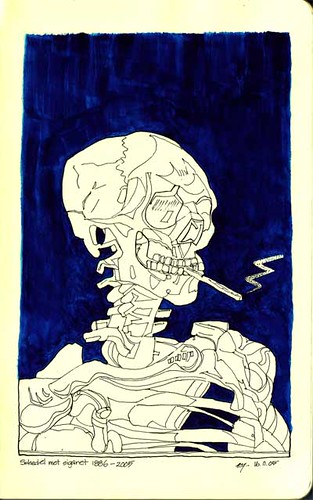In the Guardian: "Michael O'Leary, the founder of Ryanair, yesterday announced plans to introduce in-flight gambling by 2007 and said it could eventually help the airline to offer free tickets for all. He admitted it could change the image of airlines but insisted it could only be for the better as the traditional industry appeared to be built around high-cost tickets and terrible food."
One can only admire his creativity. Health professionals could learn so much from this approach! I can see it now, in my own practice:
"Good morning, patients, and welcome to Group Therapy. Due to budget cuts and insurance issues, we're trying something different today. Is the door closed...tightly? Must maintain confidentiality! Good. Let's begin, shall we? Let's form a circle with our chairs, while we set up the 'Big Wheel' in this corner...
"All right, ladies and gentlemen, please lay your money down! One personal issue per bet, that's one issue per bet, and we start the wheel, and the wheel is...rolling! There's a vibration, can you feel it, can you feel it, everybody lay your money down! This is the last call for bets, and the winner is...
Anger Management Issues! Who has an Anger Management Issue in this room? Nobody? Well, I guess the house wins.
"Don't be discouraged, because we start the wheel again, like so, and the wheel is turning, and the wheel is turning.
Let's have a big win now! Any bets overlapping two issues is...
disqualified, but we'll have a private therapy session to cope with the loss! There's a winner coming, there's a winner coming, there's a winner coming, and the winner is...
"Problems with Authority Figures! Who has a problem with...Wait, you're an authority figure? You're
the authority figure?
"What do you mean, I'm under arrest?"
(with apologies and thanks to John C. McGrath and the 1977 Integral)
 Meet Dr. Marguerite P. Barnett, plastic surgeon and belly dancer extraordinaire, who practices in Florida. (How does she balance that sword?)
Meet Dr. Marguerite P. Barnett, plastic surgeon and belly dancer extraordinaire, who practices in Florida. (How does she balance that sword?) 







